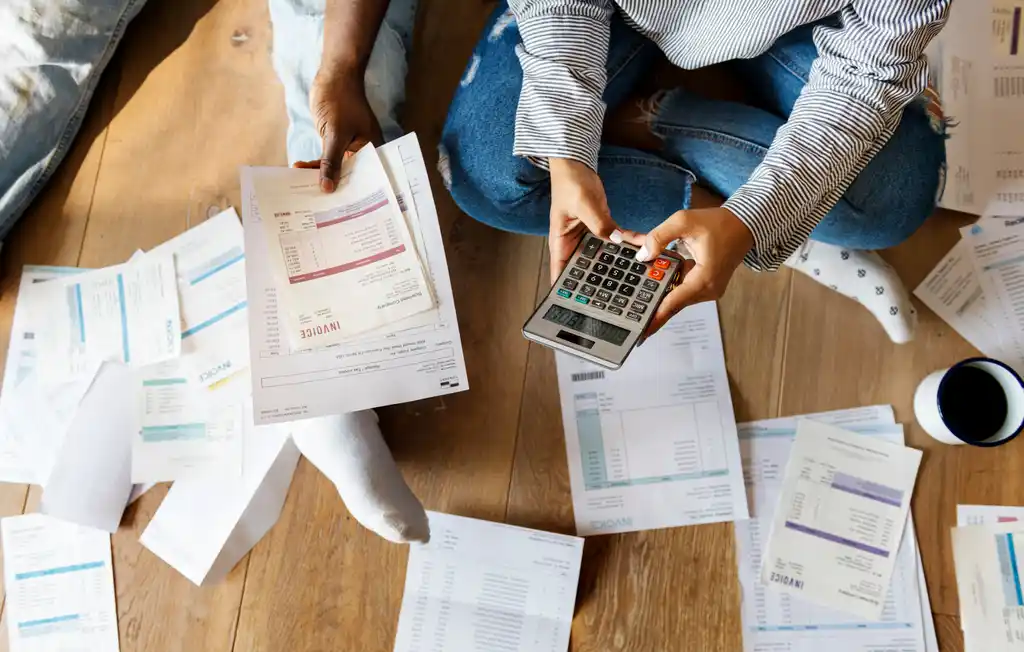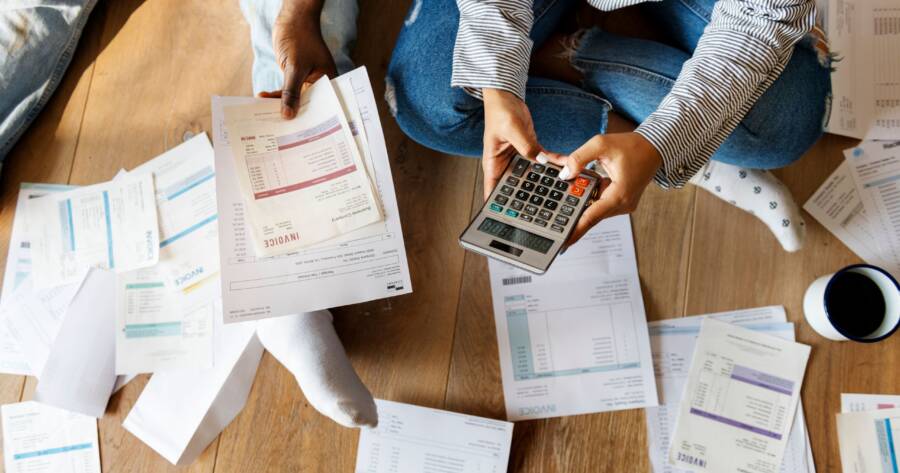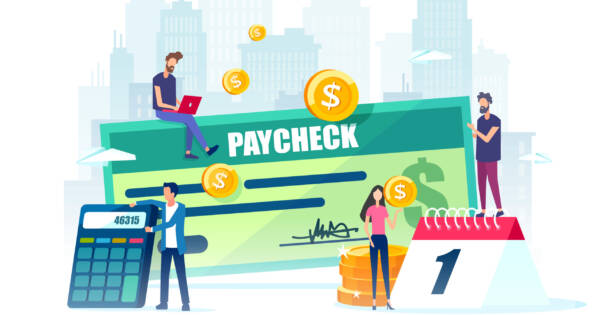Most adults have a variety of debts. It’s just a fact of life for many of us. Consumer debt in the United States stood at just under $14 trillion at the end of 2019, according to the Federal Reserve. And among American consumers today, debt is concentrated in four main areas – mortgages, student loans, car loans, and credit cards.
Most of us carry more than one of these debts. Some probably even have all four. When money gets tight, it can be difficult to know which debt to prioritize. Should you be trying to pay off a specific debt first? We’re here to help.
This article will take look at the different types of debts, along with the pros and cons of paying off each one. Of course, it would be great to pay them all off and live completely debt free. Since that’s not realistic for most of us, here’s how you should prioritize your various debt obligations.
Mortgage Debt
The conventional wisdom is that you should always prioritize paying off debts with the highest interest rates. This typically means credit cards, since they tend to charge between 15% and 30% interest. On the other hand, many financial advisors urge you to make paying off your mortgage the last priority. That’s simply because the interest rates charged on mortgages are typically 4% or less.
But before you start delaying your efforts to pay down your mortgage, consider the benefits prioritizing being mortgage free sooner as well. While it’s true that the interest rate on your mortgage is likely a lot lower than your credit card, that’s not the only factor you should consider. The principle owing on a mortgage is usually a lot higher than the principle owing on a credit card. We’re talking hundreds of thousands higher. Plus, mortgage payments tend to be stretched out over 20 or 25 years. It makes a big difference.
It Will Save Money In The Long Run
If you want to keep yourself up at night, calculate the total amount of interest you’ll pay on your mortgage over its duration at the current rate. Chances are it will be tens (or hundreds) of thousands of dollars. Most homeowners pay more in interest charges each year than they put on the principle. Making additional payments on your mortgage (over and above the normal ones) is extremely helpful. Those payments, after all, go directly against the principle. The lower the principle, the less interest you’ll end up paying. The sooner you pay off your mortgage, the less total interest you’ll pay over the life of the loan.
It’s also worth nothing with every time you pay down the principle on a mortgage, the more equity you will build up. That means more net worth for you and less for the bank. If you eventually sell the property, you’ll be sitting on more cash. Studies show that paying off a mortgage is one of the best ways to grow your personal wealth. In most years, real estate appreciation values surpasses stock market returns. The bottom line is that paying off your mortgage debt benefits you as the homeowner.
Student Loans
Student loans can be a financial albatross. The U.S. Federal Reserve estimates that Americans owe roughly $1 trillion in student loan debt. In fact, nearly three million Americans still carry student loan debt past the age of 60, according to the Consumer Financial Protection Bureau. That means student loans are a debt that needs to be taken care of, and fast. Student loans are with you for life, or at least until you pay them off. This is because you cannot dissolve student loan debt even through bankruptcy.
If you fail to make payments, both the federal government and private lenders can garnish your wages. While most other types of loans can be renegotiated and even wiped out through a bankruptcy filing, this is not the case for student loans. They are basically an indestructible debt. Your only option is to repay them.
For this reason, it’s best to pay off student loan debt as soon as possible. Our recommendation is to take out a federal student loan rather than a private one. The loans provided by the federal government typically come with lower interest rates and more favorable repayment terms. Start repaying the student loan as soon as you can. If possible, make smaller payments before you even graduate. Then start making regular payments, even during a six-to-twelve grace period that is usually offered. Lastly (and perhaps more importantly) don’t borrow more money than you need. Plan your post-secondary education carefully, and stick to the plan in order to keep costs to a minimum. The smaller the student debt, the quicker you can pay it off. Your future self will thank you.
Car Loans
How much you should prioritize paying off an auto loan depends entirely on the terms. Not all car loans are the same, as some are much more favorable than others. If you snagged a 0% financing offer, for example, then you are effectively paying no interest at all. You’re simply paying down the principle without any extra fees. That’s a great deal, since it isn’t costing you anything extra above the sale price of the car. Don’t stress about rushing to pay off this kind of car loan.
However, if you have a loan that charges an interest rate of 5% or higher, then you should make repaying it a very high priority. You also need to consider the duration of the loan. If it runs 60 months or longer, then you should definitely move to pay off that debt sooner rather than later.
Don’t Get Upside Down
The main issue with car loans is that a vehicle is a depreciating asset. The longer you own a car, the less it’s worth. This is in stark contrast to your house, which almost always goes up in value. If you take too long to pay off your car loan, you run the risk of being “upside down” or “underwater” on it. That means you owe more money than the vehicle is actually worth. This is not a good situation to be in.
Personal finance experts recommend shopping around for the lowest possible interest rate for your car loan. Then, try to keep the term between three and five years. Any longer and you could end up paying way more than the vehicle is really worth. A car loan is often a great place to make a lump sum payment. If you get a decent bonus at work or make a small score on a scratch off ticket, consider using it to cross off a large chunk of your auto loan.
Credit Cards
Credit card debt is often referred to as the worst debt you can carry. There’s plenty of reasons for that. First, credit cards tend to charge the highest interest rates. With the exception of payday loans (which should be avoided at all costs), credit card interest rates are the worst. They can run up to 30%!
Secondly, credit card debt is often used for everyday expenses that leave you with nothing of value to show for it. When you pay down your mortgage, you’re left with a valuable home that shelters you. Your student loans helped you get an education that led to a job and a regular income. A car loan leaves you with a vehicle that provides a means of transportation and gives you mobility. Credit cards just leave you in debt and not much else. No, your new TV and Xbox don’t really count as assets.
You’re not making smart financial decisions if you use your credit card to fund a night out, going on vacation, or needless shopping excursions. You might be left with some fond memories, but the high interest debt isn’t worth it. Quite the opposite, actually. For example, those new shoes you bought for $150 might end up costing you more than $200 once the interest is applied and you finally pay them off.
Despite the repeated warnings, more than 189 million Americans have credit cards, according to Debt.org, a consumer advocacy organization. On average, each U.S. household with a credit card carries a balance of $8,500. At a 20% interest rate, that would cost each household $1,700 per year in interest charges alone. And that’s without actually paying any of the principle!
We have a few tips about owning and using credit cards. First, only keep a single card. Then, set the credit limit to about $10,000 or less. You should definitely shop around for cards that charge the lowest interest rates too. You can find cards that charge in the 10-to-15% range, depending on your credit score. Then try to only use your card in emergencies. Lastly, pay off your entire balance every month. That way you won’t get hit with costly interest fees, and you can avoid carrying a balance month after month. If you can’t stick to most of these rules, then you probably shouldn’t own a credit card. Having one will only get you into financial trouble.
The Last Word
If you’re like most people, you have multiple types of debt. It can be overwhelming to figure out where to concentrate your efforts. Pay off the high interest debt first? Do you pay off the largest debt first, even if the interest rate is low? Should you pay off debt on appreciating or depreciating assets first? There’s often no clear cut answer that works for everyone.
Our best advice is usually to focus on paying off the debts that are costing you the most money. That typically means credit cards or lines of credit. After that, it’s probably car loans. Your car is never going to worth as much money as it is today, after all. Student loans are tricky, because they can balloon to enormous proportions if you’re not careful. Student debt and car loans are a great place to apply any lump sum payments you are able to make.
Normally, you save your mortgage for last. Be sure to keep with the normal payments to keep your mortgage in good standing though. And with the real estate market almost always guaranteed to increase in value, there’s no rush to pay more than you can reasonably afford. However, if your mortgage is the only debt you have left, feel free to attack it with every extra dollar to build a stronger net worth in a hurry.
 Shutterstock
Shutterstock







